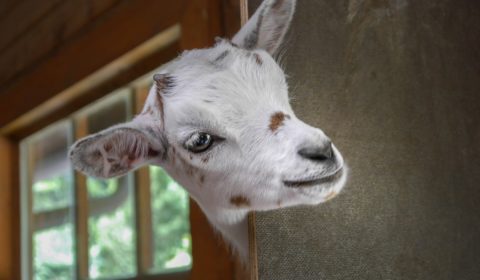
Scapegoating is a behavioural phenomenon of people finding, consciously or subconsciously, an external guilty party for a number of things, ranging from weather phenomena to their own anger and anxiety to there and then problems in their environment (abusive behaviour, social inequality or perceptions of inequality – such as claimed or actual persecution -, a past issue that is being transferred onto someone or something else, employment and unemployment issues, etc). This is behaviour we find in our own psychology all too often, with, for example, an abusive teacher, parent or partner behaviour having scarred us to the extent where we begin to see the danger everywhere, and, due to that anxiety, begin to unfairly (and unnecessarily) see the relationship between us – ex-abuser – world through solely those eyes. This is a behaviour associable with PTSD and CPTSD, and results in a full circle unless it’s stopped…one bad relationship makes us behave oddly, get more easily triggered or anxious, and ruins the next one, and then the next one, making us convinced that love is a sham and people are out to get us. In a similar way, reacting anxiously to what our parents would react to and subsequently behaving abusively towards our children (such as spilled water or a dislike) not only ruins us as parents but also perpetuates the maladaptive response in the next generation, leaving it up to them to deal with what is probably a generations old problem already.
Scapegoating also exists on the SCR level. As rigid societies are fiercely hierarchical, and base themselves on a severe division of Us and Other, as well as perception that danger is everywhere and only a specific group is perfect, even though it might not be completely safe (thus creating extensive mental health damage in its most indoctrinated members), there must always be an outside enemy to point at. Sometimes that is witches or demons, or demon possessed. At other times, it’s people with disabilities, or those who stand against this crushing, damaging social path. It is the black, the white, the red and the yellow for being different. It is the terrible foreigners. The women or the men. People of different ages and social walks of life. Bottom line is, this scapegoating is often a crucial part of social indoctrination in rigid cultures or societies. It is utilised in political speeches to convince people of an outside danger; once they run out of the outside danger, the scapegoaters generally focus on the inside, paranoid to the fault, hoping to weed out any “peril” that might be lurking in their midsts. Free thought and scapegoating cannot coexist. That is why scapegoating should be properly understood and recognised, especially as it features in social and political life. If not properly understood, scapegoating effectively messes with people’s right to informed decisions, especially where voting or where any life changing decisions for themselves or others are concerned.
